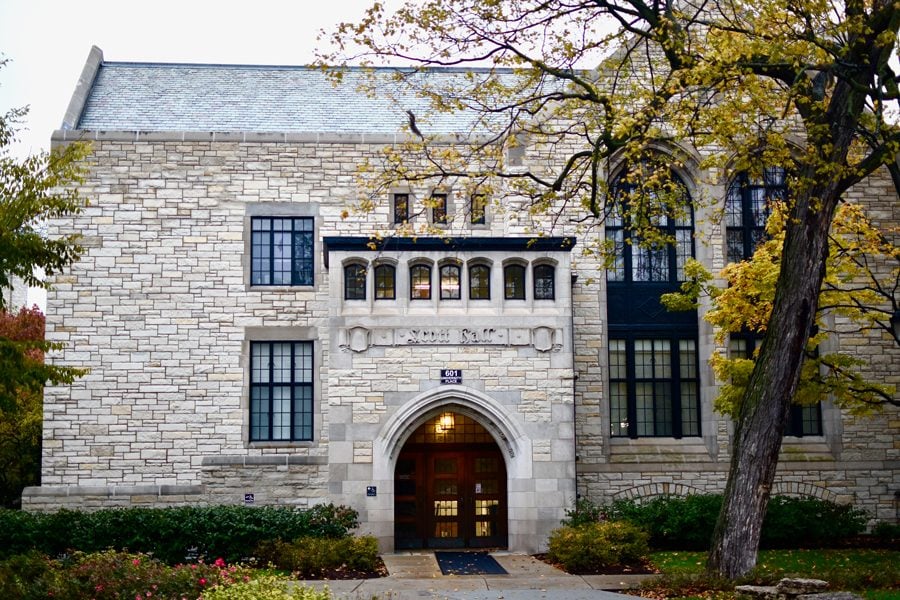Two-thirds of Americans say they are likely to vaccinate themselves against COVID-19 when possible, according to study
Daily file photo by Brian Meng
Scott Hall, 601 University Pl., home of Northwestern’s Political Science Department.
August 9, 2020
Two-thirds of Americans say they are “somewhat” or “extremely” likely to vaccinate themselves against COVID-19 when a vaccine is available, according to an ongoing national survey led by researchers from four universities, including Northwestern.
The survey, which is supported by the National Science Foundation, comes after Dr. Anthony Fauci, director of the National Institute of Allergy and Infectious Diseases, told lawmakers he is “cautiously optimistic” a coronavirus vaccine will be available in the late fall and early winter.
The researchers, including political science Prof. James Druckman, also found partisan disparities. According to the survey, 62 percent of Republicans say they would likely seek vaccination, while 75 percent of Democrats said the same.
Racial disparities also existed in the survey’s results. Of respondents, 67 percent of white people, 71 percent of Hispanic people and 77 percent of Asian American people said they were likely to vaccinate. Just 52 percent of black respondents agreed. The survey did not suggest why this disparity persists.
“One of the most notable findings is the racial disparity with African-Americans reporting substantially lower likelihoods of being vaccinated,” Druckman said in a University release. “Given the disproportional effect the virus has had on African-Americans, this is an important gap to consider moving forward.”
Over 19,000 Americans have participated in each wave of the survey, which also includes researchers from Harvard University, Northeastern University and Rutgers University. The survey also found that for those likely to vaccinate, 62 percent said they were motivated by the need to protect themselves and their families. Other reasons included protecting people in their community (45 percent) and the recommendations of medical professionals (59 percent).
Email: [email protected]
Twitter: @pamesjollard
Related stories:
— Northwestern researchers find a dramatic increase in food insecurity during COVID-19 pandemic
— NU researchers develop wearable device that helps monitor COVID-19 symptoms


